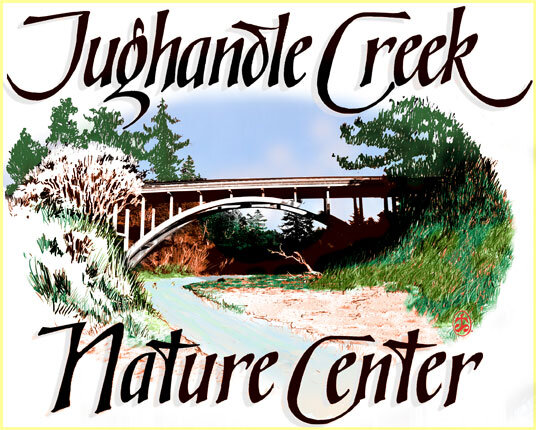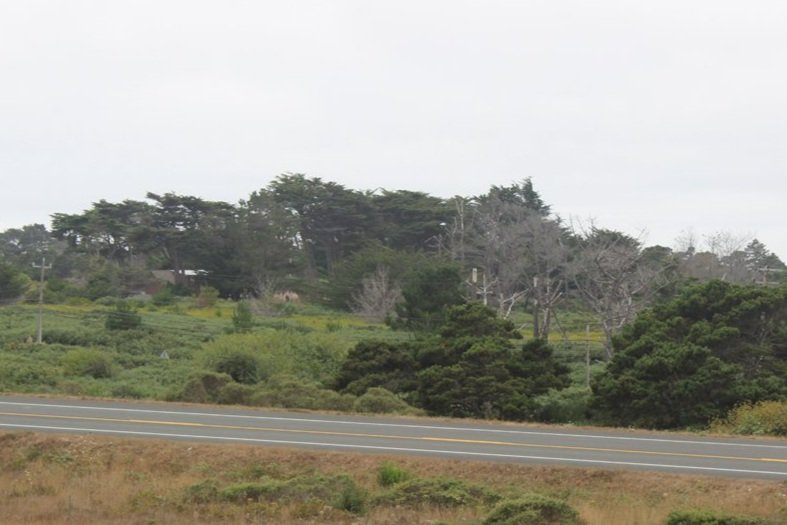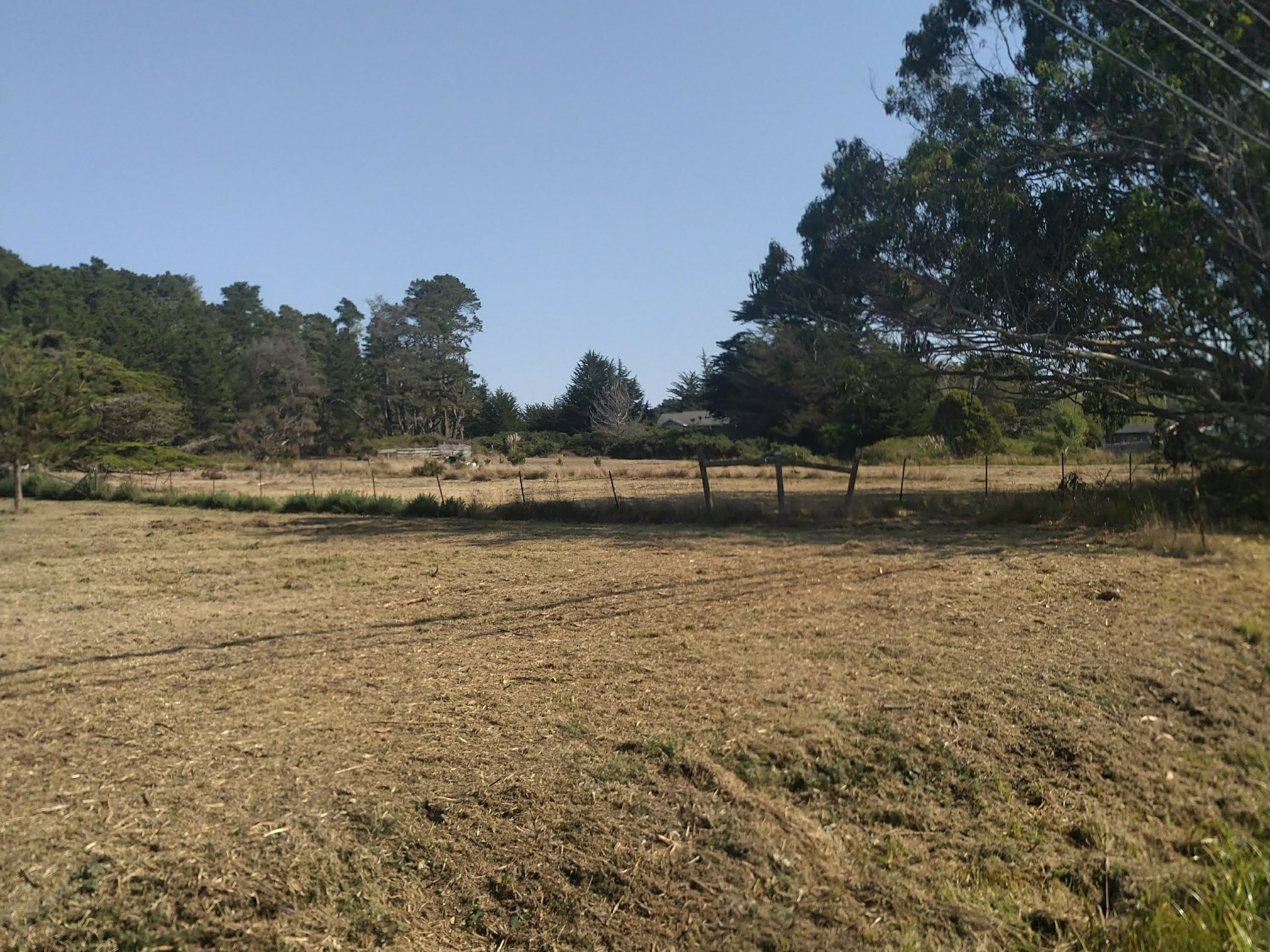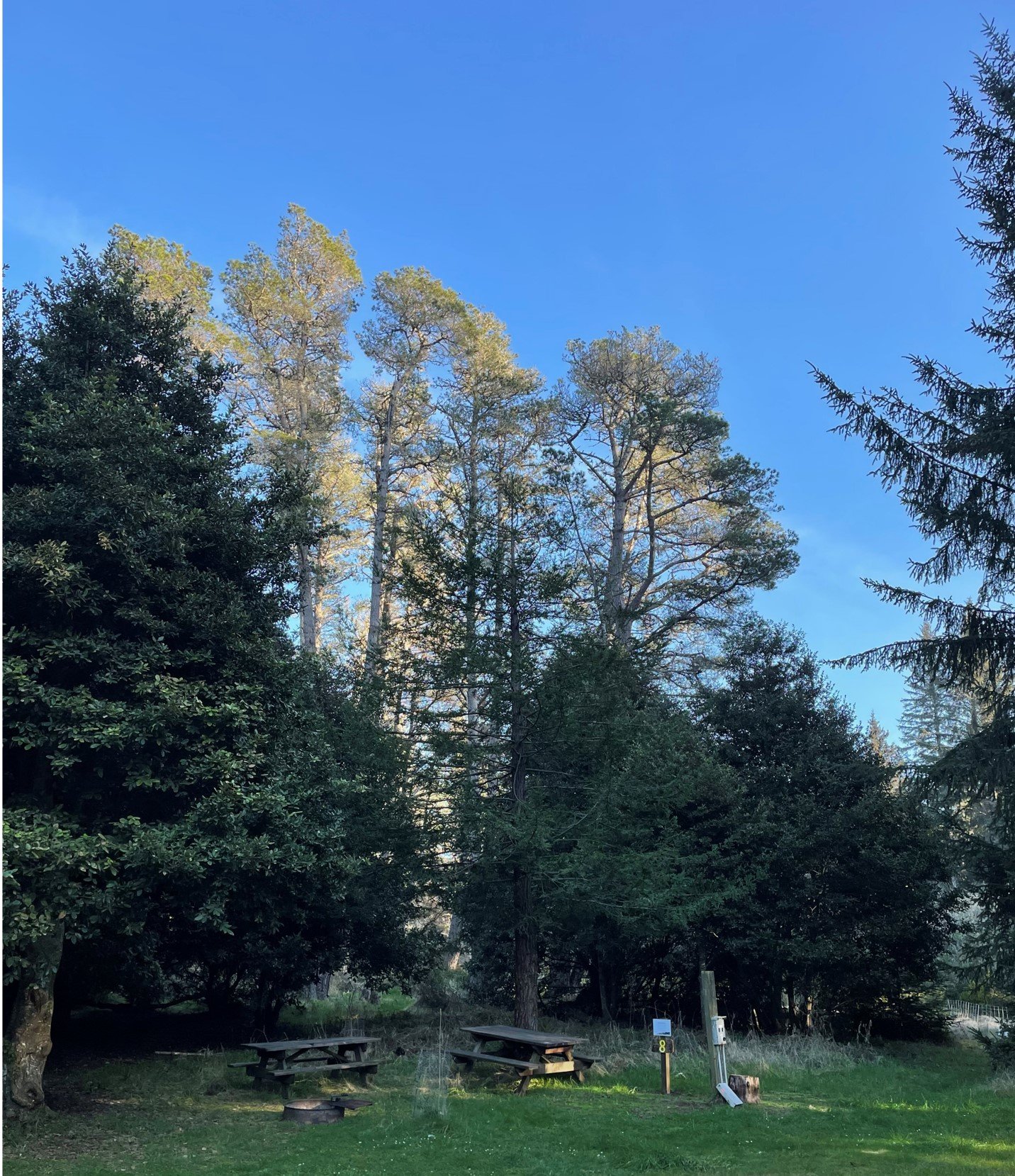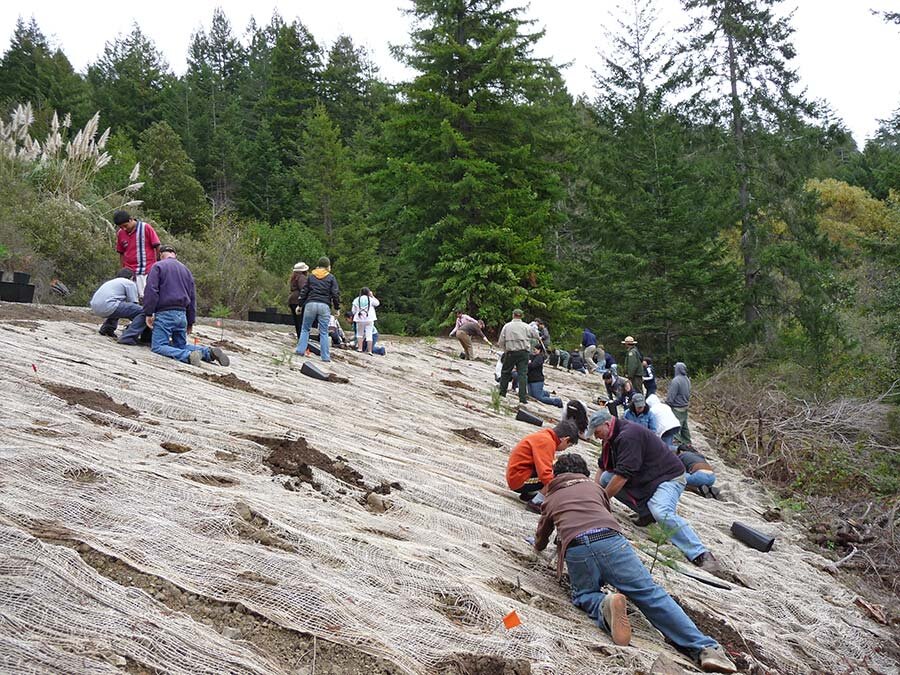Current Projects
To complete a habitat restoration project, Jug Handle starts by collecting plant seeds and cuttings from remnant natives on the degraded site and on nearby sites, as they encompass the most genetic diversity and have evolved for that location. We also use cuttings and plant divisions when seed is not readily available or when plants are needed quickly, Jug Handle’s staff are knowledgeable and experienced with both collection and restoration techniques. We work closely with clients to provide a variety of locally indigenous plants for restoration sites. Jug Handle restoration’s work can be seen at Otis Johnson Park, the Fort Bragg Coastal Trail, throughout the town of Caspar and various other locations. Clients include the City of Fort Bragg, Caltrans, California State Parks, CalFire, Mendocino Land Trust and numerous private property owners. The following are a sample of some of our projects.
This 200+ acre, $ 216,000, multi-year project is focused on gorse abatement and habitat restoration in Caspar Ca. The project includes the following best practice:
Year 1: Extract plants, flail mow, mastication and/or rototill. Mastication is preferred because it forms a thick mulch which prohibits gorse seed germination.
First Winter: Seed with cover crop plus compost to provide competition to gorse seedlings after first rain, Seed rate is 20 to 30#/acre. Drilling seed is preferable.
Year 2 Either graze gorse seedlings with goats and sheep, and/or mow and/or rototill.
Year 3: Restoration with native plants and trees (along borders) to compete with gorse seedlings.
Following years: manually remove gorse seedling, graze with goats and sheep, mow or rototill.
Project partners include: Mendocino County Agriculture Department, Jug Handle Creek Farm, Fortunate Farm, the Caspar Fire Safe Council and all the property owners.
Caspar Gorse Removal Project 2019-2023
Jug Handle Campground Restoration Project
In 1968, the former owner of Jug Handle planted numerous non-native pines that are now at the end of their life and dying. You can see the dead trees in the photos on the left, and the same shot with the dead trees removed (on the right). We are engaged in a multi-year forest restoration project to reduce fire hazards, remove hazardous non-native trees near campsites, and restore the site with an ecologically sound native forest
To achieve our goals, we are:
Improving the forest, by cutting down non-native dead trees and replacing them with native trees. In 2023, we removed approximately 75 dead trees. Annually, we will remove 10 dead pines/year and replace them with spruce, redwood and grand fir trees for the next ten years.
Eliminating invasive gorse and scotch broom.
Recreating habitat of native trees and plants for native birds and animals.
Before
After
Jackson Demonstration State Park
Jug Handle is working with over 70 organizations, tribes and community leaders to preserve Jackson Demonstration State Forest for carbon sequestration, recreation and natural communities. Over 5,000 acres of 100+ year old forest is slated for logging over the next four years by CalFire. To learn more read our report “Time to Change the Mission” or visit Savejackson.org
Stornetta Ranch Restoration
Work at these Stornetta Ranch sites on the Garcia River in Point Arena was done in partnership with Craig Bell of Trout Unlimited, Jug Handle Creek Farm, the Americorps Watershed Project members, State Parks staff, and MESA Club students from Ukiah Schools. Redwood and Alder trees were potted up and held at Jug Handle’s Nursery for over a year before installation at the River. Willow sprigging was also used to restore the site.
Stornetta Ranch before restoartion
Stornetta Ranch after restoration
Big River Restoration
Work on this Big River site was done in collaboration with State Parks staff, Mendocino Land Trust staff including Matt Coleman and volunteers, Jug Handle Creek Farm and Nature Center, MESA middle school students and teacher Irene Heldstab from Fort Bragg, Ukiah MESA Club and Mendocino High School’s SONAR program students and their teachers. Jug Handle Farm and Nature Center had grown seeds from Douglas fir cones collected by SONAR students; held the trees at the nursery for almost four years, then 250 fully grown trees were planted by this team.
Additional Past Projects
Rivers & Watersheds
1b Garcia River Estuary Project
2 Garcia River Streambank MRC
3 Garcia River streambank plantings
3b Garcia River monitoring
4 Gualala River redwood float
5 Albion stream temperature monitoring
6 Little River coastal restoration
7a Willow Sprigging landslide
7b Stream Temp monitoring
8 Little River stream bank planting
9a Big River Douglas Fir planting
9b Big River stream monitoring
10 Big River coastal restoration
Coastal Projects
11 Coastal headlands restoration
12 Big River No. Fork stream temp
13 Caspar Creek planting
14 Caspar Creek planting 2
15a Point Cabrillo coastal restoration
15b Point Arena coastal restoration
16a Caspar coastal restoration
16b Jug Handle Farm coastal planting
17a Jug Handle Creek willow sprigging
17b Shore pine restoration
17c Gorse removal
18 Noyo Harbor planting
19 Highway 20 revegetation
20 Little Valley redwood planting
Parks & Salmon Habitat
21 Ten Mile, So Fork planting
22 Mill Creek planting
23 Noyo River erosion control
24 Belinda Cove revegetation
25 Navarro Point revegation
26 Glass Beach revegetation
27 Simcha Sitka spruce revegetation
28 Hardy Creek coho salmon restoration
29 Lake Cleone coastal restoration
30 Wages Ck. coho salmon restoration
31 Otis Johnson Park restoration
32 GP Mill Site seed test plots
33 Caspar Headlands State Park planting
